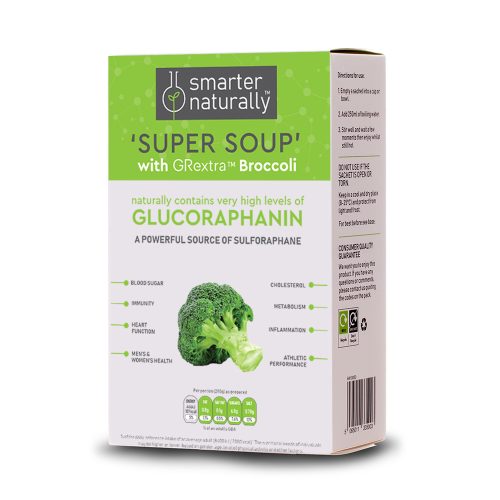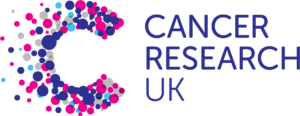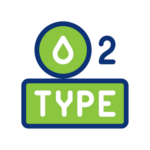GRextra for Cancer Risk
Half of people in the UK born after 1960 will be diagnosed with some form of cancer during their lifetime. Breast, prostate, lung and bowel cancers are the most common – together they make up over half of all cancer cases.
The best way to reduce cancer risk is to adjust your lifestyle – for example by avoiding smoking, which is the single largest cause of cancer. But there’s now an exciting and growing body of research indicating that through its effect on our metabolism, sulforaphane can act to help defend our bodies from cancer cells.
Since glucoraphanin is converted into sulforaphane in our bodies, scientists have suggested that that eating a glucoraphanin-rich diet alongside making other lifestyle changes could help support people who are looking to reduce their risk of developing cancer, and may even help slow the growth and progression of existing cancers in their early stages.
Research & Evidence Summary
A range of research studies have shown that eating a diet rich in glucoraphanin may help slow the growth of some forms of cancer, and can reduce the risk of developing some of the most common forms of cancer in the first place.
We’ve summarised some of the key research papers in this area below, along with links to the full-text published papers – or use the buttons below to skip to evidence for specific forms of cancer.
Prostate Cancer
1. Regularly Eating Glucoraphanin-Rich Broccoli Soup May Help Slow Prostate Cancer Progression
In the ESCAPE trial (Traka et al, 2019, American Journal of Clinical Nutrition), men with early-stage prostate cancer who ate a soup containing high-glucoraphanin broccoli once a week for a year showed lower activity of genes associated with cancer progression and development at a genetic level than men in the control group (who ate a standard vegetable soup instead).
Researchers also observed that the tumours in men eating the glucoraphanin-rich soup showed less clinical progression over the year, although the study was insufficiently large to derive conclusive proof of this effect; a larger study is needed to provide greater certainty.
This study was focused on exploring how eating a glucoraphanin-rich soup could impact on cancer progression in men that had already been diagnosed with prostate cancer. Prostate cancer typically develops over many years, starting as small, benign (not considered dangerous) growths that in some cases become increasingly malignant (aggressive and dangerous) and develop dangerous characteristics such as drug-resistance and metastasis (the ability to spread throughout the body). These changes in the cancer are a consequence of changing patterns of gene expression, with usually-dormant genes being activated and protective genes being switched off.
In the control group in the ESCAPE trial, altered expression of several thousand genes (including increased expression of several hundred genes associated with the development and progression of cancer) was detected. In contrast, these changes were reduced in men who ate one portion of glucoraphanin-rich broccoli soup every week for a year. The more glucoraphanin the men consumed in their weekly soup, the greater this effect was – with those eating the highest dose showing complete suppression of the increased expression of cancer-associated genes seen in the control group.
Although this study was designed only to measure gene expression and was not sufficiently large to draw firm conclusions about the clinical progression of these cancers, researchers noted a trend between the eating of a high-glucoraphanin soup and a slower clinical progression of the participants’ prostate cancer.
2. Eating a Glucoraphanin-Rich Diet Reduces Prostate Cancer Risk in Healthy Men
A large observational study involving almost 30,000 men looked at whether the amount of different fruits and vegetables in men’s diets was linked to their risk of developing prostate cancer. The study found that a diet rich in glucoraphanin-rich vegetables (in particular broccoli & cauliflower) reduced the risk of developing aggressive prostate cancer by ~40-45%.
Three other observational studies (collectively involving over 5,000 men) came to similar conclusions, finding that diets containing lots of glucoraphanin-rich vegetables (in particular broccoli) were associated with around a 40% reduction in the risk of prostate cancer.
-> Read the full papers: Cohen et al, 2000, Kolonel et al, 2000 & Joseph et al, 2004
In a meta-analysis (a combined assessment of multiple studies in a certain area of interest) of 13 different research studies into the effect of glucoraphanin-rich vegetable diets on the risk of prostate cancer, researchers concluded that eating a large amount of cruciferous vegetables in your diet may reduce the risk of developing prostate cancer by ~10-20%. However, the authors were clear that more research was needed before this link could be confirmed.
Studies have also investigated the biochemical mechanism by which eating glucoraphanin-rich vegetables like broccoli could be reducing prostate cancer risks for men. In one study, men who ate high-glucoraphanin broccoli once per week for a year were found to have lower levels of key genes that are associated with increased cancer risk, such as EGF, TGFβ1 & insulin, than those in the control group, which could explain why eating these vegetables seems to lower your risk of developing prostate cancer.
Breast Cancer
1. Eating a Glucoraphanin-Rich Diet Reduces Breast Cancer Risks
Asian populations (which often eat a lot of glucoraphanin-rich vegetables in their diet) have a lower breast cancer risk than Western populations. In a study of over 650 people, researchers looked at whether eating a diet rich in glucosinolates (such as glucoraphanin) seemed to be a factor protecting these populations from developing breast cancer.
They found that eating more glucoraphanin-rich vegetables seemed to be protective against breast cancer, with those eating the most in their diets having a 50% lower risk of developing breast cancer than those in the control group.
Self-reporting of vegetable intake via questionnaires is often inaccurate, so this study measured the levels of isothiocyanates in urine samples. Isothiocyanates are the breakdown products of glucosinolates, with glucoraphanin being the most common glucosinolate in cruciferous vegetables, so the measurement provides a direct means of estimating the subjects’ intake of cruciferous vegetables.
Participants in the study were matched as closely as possible to a control partner, taking into account (among other factors) age, menopausal status, family history of breast cancer, body mass index and activity levels, so that the largest remaining difference between them was the amount of cruciferous vegetables regularly eaten (as measured by urinary isothiocyanates levels).
The study found that increasing levels of isothiocyanates in urine was associated with a lower breast cancer risk. The 25% of participants with the highest urinary isothiocyanates seemed to have a 50% lower risk of developing breast cancer than the control group.
In a meta-analysis of 13 different research studies into the effect of glucoraphanin-rich vegetable diets on the risk of breast cancer, researchers concluded that eating a large amount of cruciferous vegetables in your diet may reduce the overall risk of developing breast cancer by ~15%. However, the authors concluded that more research was needed before this link could be confirmed.
Bowel Cancer
1. Eating a Glucoraphanin-Rich Diet Reduces Bowel Cancer Risk
In a meta-analysis of 35 different research studies into the effect of glucoraphanin-rich vegetable diets on the risk of bowel cancer, researchers concluded that eating more cruciferous vegetables in your diet (and specifically eating more broccoli and/or cabbage) reduced the risk of developing bowel cancer by ~15-20%.
Bladder Cancer
1. Eating a Glucoraphanin-Rich Diet Reduces Bladder Cancer Risk
In an observational study involving over 1,700 people, researchers compared the diets of people who had been diagnosed with bladder cancer against a control group which had not developed bladder cancer. They found significant evidence that eating a diet containing lots of glucoraphanin-rich vegetables (such as broccoli) reduced the risk of developing bladder cancer: those eating lots of these vegetables in their diet seemed to have ~30% lower risk of developing bladder cancer than those eating very few.
A Soup A Week To Stay At Your Peak
It’s not just cancer. Glucoraphanin & sulforaphane have also been extensively researched for their effects on:
Our customers have found a healthier future with us.
Could you?
Start your trial and discover what SmarterNaturally soup could do for you - from just £5 a week.







